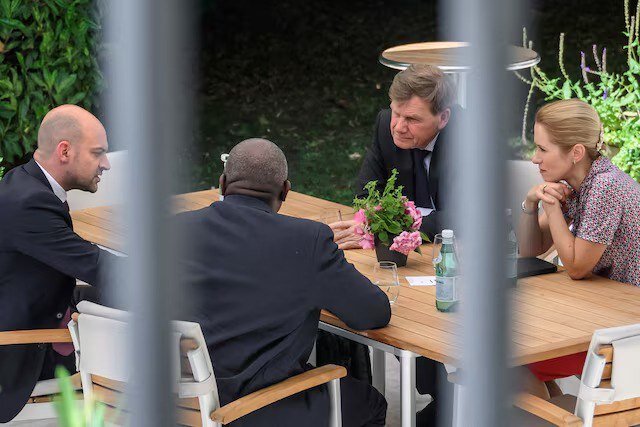Europe's Own Goal
Europe is cunningly seeking to absolve itself from the current situation surrounding the Iran nuclear issue

TEHRAN — On July 26, 2025, leaders of the United Kingdom, France, and Germany issued a joint threatening Iran to invoke the so-called “snapback mechanism” by August 31, 2025.
If put into action, the measure would restore all UN Security Council sanctions that were in place before 2015, the year JCPOA was finalized. To Iran, the move comes as yet another instance of Europe utilizing international law to further Western strategic interests.
The threat was issued following a conference call held the same day between UK Prime Minister Keir Starmer, French President Emmanuel Macron, and German Chancellor Friedrich Merz, during which the trio discussed a range of international developments—including Iran’s nuclear program which is based on the Safeguards Agreement.
Europe’s policy of pressure
One should not and cannot ignore the timing of this threat came just one day after the European Union and Iran resumed diplomatic discussions on July 25. The meeting was their first communication since the U.S.-Israeli airstrikes targeted Iran’s nuclear facilities in mid-June 2025. Those strikes, which impacted sites in Fordow, Natanz, and Isfahan, were widely denounced in Iran as blatant violations of international law. Following the unprovoked war, Tehran has maintained that any return to negotiations must include assurances that such aggressive actions will not be repeated.
Rather than addressing these security issues, European leaders have gone for exerting pressure on Iran despite their own failure to comply with the JCPOA following the U.S. withdrawal in May 2018. The current European stance comes to Iranian officials not as a diplomatic overture but as a coercion disguised in the rhetoric of an international responsibility.
Europe’s double standards on nuclear compliance
Iran has repeatedly demonstrated it is ready to participate in discussions but asserts that they must be fair and based on reciprocal respect. Authorities in Tehran highlight that, though Iran is a signatory to the Nuclear Non-Proliferation Treaty (NPT) and its nuclear activities are consistently being monitored by the IAEA, Israel, an unrecognized nuclear weapons nation excluded from the NPT, faces no examination. Iran argues that this major inconsistency undermines the credibility of the global non-proliferation framework.
Conversely, European nations insist on complete Iranian adherence to the JCPOA, despite their inability to fulfill commitments made under the agreement. Tehran adhered to the pact's requirements for a full year, despite facing harsh U.S. sanctions throughout that period. This commitment was repeatedly confirmed by the IAEA. Europe’s efforts to bypass those sanctions through the INSTEX mechanism ultimately did not provide Iran with any shred of economic gains.
In contrast, Israel has not encountered consequences for multiple acts of sabotage targeting Iranian nuclear sites and the assassination of nuclear scientists, which took place with tacit Western approval or indifference. Iranian officials say that the selective enforcement of international standards reinforces the belief that Western powers are more invested in preserving regional dominance than genuinely upholding non-proliferation principles.
Tehran argues that penalizing Iran for its fully-monitored nuclear program, while allowing Israel to remain outside the NPT without consequence, undermines Europe's commitment to the global non-proliferation regime.
The threat to trigger the snapback mechanism, particularly by a bloc strongly aligned with U.S. policy, makes Tehran question Europe’s independence and sincerity as a diplomatic actor.
Iran weighs exit from NPT
The latest developments have prompted serious debate within Iran’s legislative bodies. In Iran’s Parliament, the National Security and Foreign Policy Committee is drafting a legislation that would require the government to withdraw from the NPT if the snapback mechanism is activated. The committee spokesperson confirmed that the majority supports the draft, arguing that Iran cannot remain bound to a treaty when coercion is used to reimpose sanctions unilaterally.
This growing disillusionment is shared by Iran’s top security figure. For example, on July 27, IRGC intelligence chief Majid Khademi issued a pointed warning during remarks at a ceremony in Tehran, saying, “If European powers proceed with hostile actions, we have countermeasures ready—and the main losers will be the Europeans themselves.”
Leave a Comment